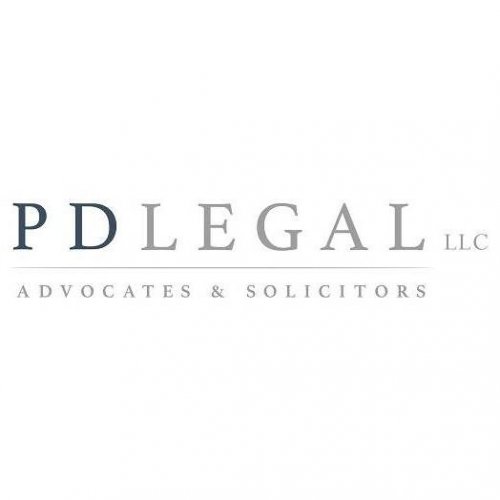Best ESG Advisory & Compliance Lawyers in City Hall
Share your needs with us, get contacted by law firms.
Free. Takes 2 min.
List of the best lawyers in City Hall, Singapore
About ESG Advisory & Compliance Law in City Hall, Singapore
ESG Advisory & Compliance law refers to legal guidance and regulatory adherence concerning Environmental, Social, and Governance (ESG) responsibilities. In City Hall, Singapore, businesses and organizations are increasingly required to address ESG issues as a part of their corporate strategy and public accountability. This includes complying with requirements on sustainability reporting, labor standards, ethical sourcing, anti-corruption policies, and environmental impact mitigation. With the push for Singapore to be a regional sustainability hub, both public and private sectors within City Hall and beyond must ensure their operations meet the growing local and international legal expectations.
Why You May Need a Lawyer
Engaging a lawyer specializing in ESG Advisory & Compliance can be crucial in several scenarios:
- Preparing sustainability reports or responding to mandatory ESG disclosures.
- Interpreting and complying with Singapore Exchange (SGX) requirements for listed entities.
- Adopting or revising company policies to align with environmental protection or labor standards.
- Navigating investigations or enforcement actions by regulatory bodies, such as the Accounting and Corporate Regulatory Authority (ACRA).
- Managing risks related to greenwashing, false statements, or ethical breaches.
- Integrating ESG principles into mergers, acquisitions, or other corporate restructuring.
- Ensuring supply chain due diligence and vendor compliance with applicable ESG norms.
- Advising on sector-specific issues, such as construction, energy, finance, or manufacturing, regarding new environmental ordinances or guidelines.
Local Laws Overview
Singapore's ESG regulatory landscape is robust and constantly evolving, especially for companies operating in the City Hall area, the heart of the city-state’s business and governmental activity. Key highlights include:
- Mandatory sustainability reporting for all SGX-listed companies, covering environmental policies, social practices, and governance measures.
- Environmental Protection and Management Act and subsidiary legislations that regulate waste management, pollution control, and resource efficiency.
- Workplace Safety and Health Act and Employment Act to ensure fair labor practices and worker protections.
- Corruption, Drug Trafficking and Other Serious Crimes (Confiscation of Benefits) Act addressing transparency, anti-corruption, and corporate governance.
- Green Finance Action Plan championed by the Monetary Authority of Singapore, emphasizing sustainable investment and responsible financing.
- Singapore Carbon Services and climate change mitigation initiatives requiring emissions tracking and reduction planning.
Non-compliance can attract penalties, reputational harm, and loss of business opportunities. Legal advice ensures policies and operations are consistent with the latest local requirements.
Frequently Asked Questions
What does ESG stand for and why is it important?
ESG stands for Environmental, Social, and Governance. It refers to standards for a company’s behavior used by socially conscious investors and regulators to screen potential investments or monitor compliance.
Are ESG requirements legally binding in Singapore?
Certain ESG requirements are mandated by Singapore law, such as sustainability reporting for SGX-listed companies and compliance with environmental and labor protection laws. Others may be industry-specific guidelines or voluntary codes affecting business reputation and competitiveness.
What are the main ESG laws affecting businesses in City Hall, Singapore?
Key laws include the Environmental Protection and Management Act, the Workplace Safety and Health Act, relevant SGX listing rules, and anti-corruption legislation. There are also sector-specific requirements, depending on your industry.
Who regulates ESG compliance in Singapore?
Multiple regulators oversee ESG, including the Accounting and Corporate Regulatory Authority (ACRA), the Monetary Authority of Singapore (MAS), the Ministry of Manpower, and the National Environment Agency.
Do small and medium enterprises need to comply with ESG laws?
While some rules specifically target listed companies or large corporations, SMEs are still subject to foundational laws on environmental protection, worker safety, and anti-corruption. Voluntary ESG adoption is also gaining traction among smaller businesses.
What are the penalties for non-compliance with ESG laws?
Penalties include fines, business restrictions, and in severe cases, criminal prosecution. Non-compliance may also lead to loss of investor confidence or exclusion from tenders and partnership opportunities.
How can a lawyer help with ESG reporting?
A lawyer can help interpret complex regulations, draft or review reports, ensure accurate and honest disclosures, and advise on risk management strategies to mitigate legal exposure.
What is greenwashing and how can legal counsel help avoid it?
Greenwashing involves making false or misleading claims about a company’s environmental practices. Lawyers can help develop accurate reporting systems and marketing materials to prevent such issues and their associated penalties.
Do international ESG standards apply in Singapore?
While Singapore adopts its own regulations, many global standards, such as the Global Reporting Initiative (GRI) and the Task Force on Climate-related Financial Disclosures, influence local practices and may be expected by investors or partners.
What should companies do if they are under investigation for ESG non-compliance?
Engage legal counsel immediately to assess the situation, prepare documentation, communicate with regulatory authorities, and negotiate potential settlements or remedial actions.
Additional Resources
If you are in need of more information or support, these organizations and bodies can be valuable:
- Accounting and Corporate Regulatory Authority (ACRA) - for company compliance matters
- National Environment Agency (NEA) - for environmental regulations and guides
- Monetary Authority of Singapore (MAS) - for green finance directives and sustainable investment policies
- Singapore Exchange (SGX) - for sustainability reporting requirements for listed companies
- Singapore Business Federation Sustainable Development Business Group
- Law Society of Singapore - for referrals to experienced ESG legal professionals
Next Steps
If you require legal assistance on ESG Advisory & Compliance matters in City Hall, Singapore, consider the following steps:
- Assess your current ESG obligations and identify areas of concern or uncertainty.
- Collect relevant documentation, such as policies, reports, and correspondence from regulators.
- Consult with a qualified lawyer who has experience in ESG compliance and local regulations.
- Prepare questions or specific objectives for your legal consultation.
- Follow your lawyer’s advice on policy changes, remediation, or engagement with regulators.
Timely legal guidance can help your business not only meet regulatory requirements but also strengthen its reputation, manage risks effectively, and contribute to a sustainable future for Singapore.
Lawzana helps you find the best lawyers and law firms in City Hall through a curated and pre-screened list of qualified legal professionals. Our platform offers rankings and detailed profiles of attorneys and law firms, allowing you to compare based on practice areas, including ESG Advisory & Compliance, experience, and client feedback.
Each profile includes a description of the firm's areas of practice, client reviews, team members and partners, year of establishment, spoken languages, office locations, contact information, social media presence, and any published articles or resources. Most firms on our platform speak English and are experienced in both local and international legal matters.
Get a quote from top-rated law firms in City Hall, Singapore — quickly, securely, and without unnecessary hassle.
Disclaimer:
The information provided on this page is for general informational purposes only and does not constitute legal advice. While we strive to ensure the accuracy and relevance of the content, legal information may change over time, and interpretations of the law can vary. You should always consult with a qualified legal professional for advice specific to your situation.
We disclaim all liability for actions taken or not taken based on the content of this page. If you believe any information is incorrect or outdated, please contact us, and we will review and update it where appropriate.










